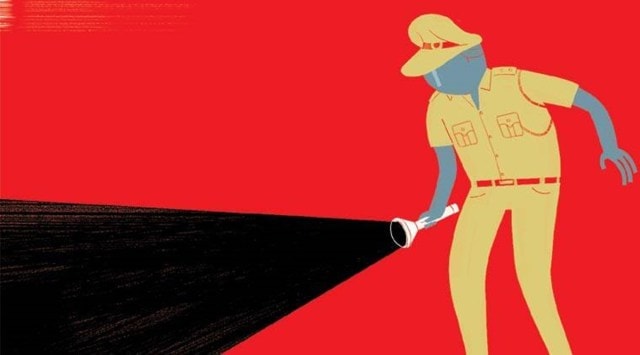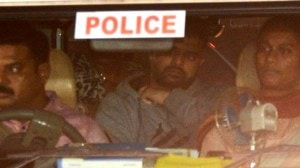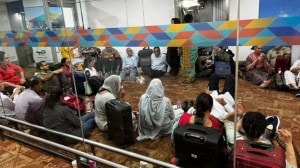- India
- International
From Vinod Dua to Disha Ravi: A look at past sedition cases
We take a look at some of the sedition cases that stood out in the recent past.
 No new FIRs will be filed for sedition and pending cases will all be put on hold, the top court ruled.
No new FIRs will be filed for sedition and pending cases will all be put on hold, the top court ruled.The Supreme Court on Wednesday ruled that the sedition trials will be paused while the government re-examines it. The historic verdict is likely to impact hundreds charged under the controversial colonial-era law.
No new FIRs will be filed for sedition and pending cases will all be put on hold, the top court ruled. “It will be appropriate not to use this provision of law till further re-examination is over. We hope and expect that centre and state will desist from registering any FIR under 124 A (sedition law) or initiate proceeding under the same till re-examination is over,” Chief Justice of India NV Ramana said.
We take a look at some of the sedition cases that stood out in the recent past
Vinod Dua vs Union of India
In June last year, the Supreme Court quashed an FIR lodged against senior journalist Vinod Dua in Shimla, Himachal Pradesh, over a year after an FIR was filed against him by a local BJP leader over critical comments he had made against Prime Minister Narendra Modi and the Centre on his YouTube show.
In October 2020, the top court has reserved verdict on the petition after hearing arguments for Dua, the Himachal Pradesh government and the complainant in the case. On the issue of protection of freedom of speech and expression of media personnel, it said, “Every journalist is entitled to protection under the Kedar Nath Singh judgment (the famous verdict of 1962 on the scope and ambit of offence of sedition in the IPC).”
Disha Ravi tool kit case

During the farmers protests in early 2021, Bengaluru-based climate activist Disha Ravi was arrested by Delhi Police in connection with a toolkit on the farmer protests. She was booked under IPC sections relating to sedition, promoting enmity and criminal conspiracy.
A little over a week after her arrest, a Delhi court granted bail, observing that the “offence of sedition cannot be invoked to minister to the wounded vanity of governments.” Vy granting her bail, the trial court rejected the Delhi Police charge that she was part of a “larger conspiracy” to incite violence in the national capital on January 26.
“I am conscious of the fact that it is very difficult to collect evidence for the offence of conspiracy but I’m equally conscious of the fact that what is difficult to prove for the prosecution in the affirmative is virtually impossible for the defence to prove in the negative,” the order stated.
Rajat Sharma v Union of India
In 2021, Rajat Sharma and Neh Srivastava filed a Public Interest litigation against former Jammu and Kashmir Chief Minister Farooq Abdullah over his remarks on the Centre’s move to strike down Article 370. The plea stated that Abdullah had commented on “restoring Article 370” with “help of China.”
Hearing the matter in March, the Supreme Court said it was “not seditious to have views different from the government.” Dismissing the plea, the top court imposed a fine of Rs 50,000 on the petitioners, observing that they had failed to substantiate the allegations.
JNU sedition case
Ten people, including student leaders Umar Khalid and Kanhaiya Kumar, were accused in the 2016 Jawaharlal Nehru University sedition case. According to the chargesheet filed in the case, police alleged that Kumar had led a procession and supported — along with others named as accused — seditious slogans raised on the JNU campus on February 9, 2016, during an event to mark the hanging of Parliament attack convict Afzal Guru.
The accused face charges under IPC sections 124A (sedition), 323 (voluntarily causing hurt), 465 (forgery), 471 (using as genuine a forged document or electronic record), 143, 149 (being a member of an unlawful assembly), 147 (rioting) and 120B (criminal conspiracy).
The Elgar Parishad case
The case is based on an FIR filed in Pune alleging that banned Naxalite groups had organised the Elgaar Parishad on December 31, 2017, on the eve of the 200th anniversary of the Battle of Bhima Koregaon. Police claims that speeches made at Elgaar Parishad were at least partly responsible for instigating violence the next day.
The case became prominent because of the arrest of several high profile activists and lawyers, several of who remain in jail even today. Among the accused was Jesuit priest and activist Stan Swami, who passed away in prison last year.
Buzzing Now
May 31: Latest News
- 01
- 02
- 03
- 04
- 05




























